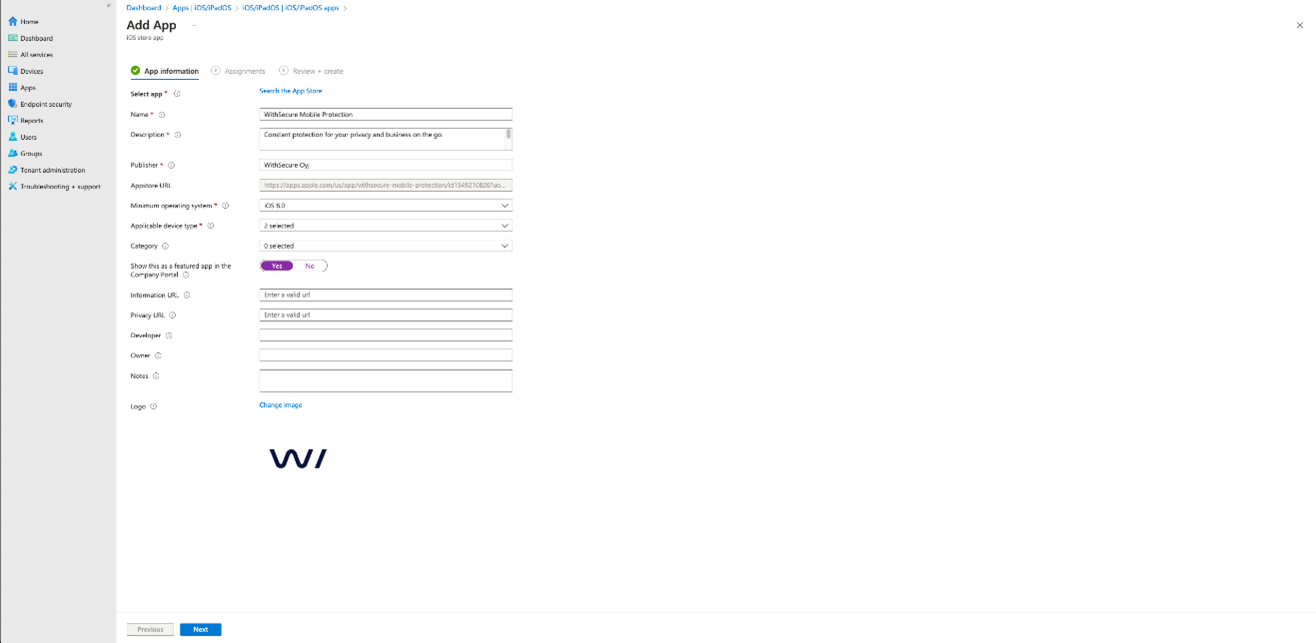Elements Mobile Protection iOS app with Microsoft Intune MDM
A collection of short easy steps to get started in taking the product into use
Follow the steps below to deploy the WithSecure Elements Mobile Protection app with Microsoft Intune MDM to iOS devices.
Step 1: Adding the iOS app to Microsoft Intune MDM
 Step 2: Adding the iOS app configuration policies
Step 3: Use the configuration designer
Step 2: Adding the iOS app configuration policies
Step 3: Use the configuration designer
Step 1 - Adding the iOS app to Microsoft Intune MDM
Before you integrate WithSecure Elements Mobile Protection with your MDM, make sure that the following prerequisites are met:
- You have enrolled your end device
- You have set the profile with policy restrictions
Note: WithSecure does not provide support for or instructions related to profiles and policies, unless specifically mentioned.
- An internet connection for setting up the VPN and permissions for the files
- A valid WithSecure Elements Mobile Protection subscription
To add the app to Intune MDM:
- Log in to your Microsoft Intune portal.
- Select Apps > iOS/iPadOS > Add.
The Select app type pane opens. - From the App type drop-down menu, select iOS store app, and then choose Select.

- In the Add App view, select Search the App store.
The Search the App Store pane opens. - In the Search field, enter WithSecure Mobile Protection.
- Select WithSecure Elements Mobile Protection > Select.
The Add App view opens. - In the App Information tab, select Yes to show WithSecure Mobile Protection as a featured app in the Company Portal, and select Next.
- In the Assignments tab, under Required, select Add all users, and select Next.
- In the Review + create tab, select Create.
- When you are done, on the Add App view, select OK.
The WithSecure Elements Mobile Protection app has been added to Microsoft Intune MDM.
Next, add the app configuration policies.




